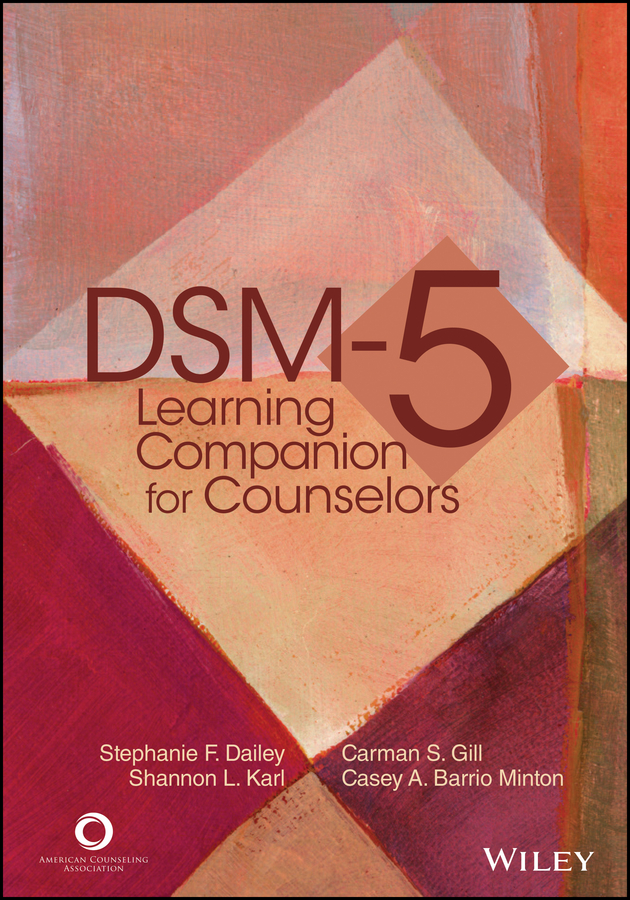
Copyright 2014 by the American Counseling Association. All rights reserved. Printed in the United States of America. Except as permitted under the United States Copyright Act of 1976, no part of this publication may be reproduced or distributed in any form or by any means, or stored in a database or retrieval system, without the written permission of the publisher.
10 9 8 7 6 5 4 3 2 1
American Counseling Association
5999 Stevenson Avenue
Alexandria, VA 22304
Associate Publisher  Carolyn C. Baker
Carolyn C. Baker
Production Manager  Bonny E. Gaston
Bonny E. Gaston
Copy Editor  Elaine Dunn
Elaine Dunn
Editorial Assistant  Catherine A. Brumley
Catherine A. Brumley
Cover and text design by Bonny E. Gaston.
Library of Congress Cataloging-in-Publication Data
Dailey, Stephanie F.
DSM-5 learning companion for counselors / Stephanie F. Dailey, EdD, Carman S. Gill, PhD, Shannon Karl, PhD, Casey A. Barrio Minton, PhD.
pages cm
Includes bibliographical references and index.
ISBN 978-1-55620-341-1 (alk. paper)
1. Mental health counselingStudy and teaching. 2. Mental health counselorsEducation. 3. Diagnostic and statistical manual of mental disorders. 5th ed. I. Gill, Carman S. II. Karl, Shannon (Shannon L.) III. Barrio Minton, Casey A. IV. Title. V. Title: Diagnostic and statistical manual of mental disorders, fifth edition, learning companion for counselors.
RC466.D35 2014
362.204251dc23
2013046898
Dedication
This book is dedicated to professional counselors
who draw upon the art and science of counseling in a
courageous attempt to serve and foster growth in those seeking
relief, wellness, and personal empowerment.
Foreword
The Diagnostic and Statistical Manual of Mental Disorders, Fifth Edition (DSM-5), published in 2013 by the American Psychiatric Association, is a dense book that spans 947 pages and describes hundreds of mental disorders. Keeping abreast of the manual's evolving changes is a tedious but necessary task for counselors. In their text DSM-5 Learning Companion for Counselors, Dailey, Gill, Karl, and Barrio Minton provide readers with an exceptionally practical, straightforward, and, most important, readable summary of the DSM-5.
One of the many highlights of the text is its focus on clinical utility and counselor practice implications. Care is taken to ensure readers understand what the changes from the DSM-IV-TR to DSM-5 mean to them and how these changes can be applied in their day-to-day practice.
Structural changes to the DSM-5, diagnostic changes, and newly added disorders are discussed, and Dailey and colleagues take care to avoid distracting readers with diagnostic material that has not changed. While it is easy to feel overwhelmed by the sheer volume of diagnostic changes presented in the DSM-5, the authors ease this transition by highlighting the changes that relate to disorders counselors more commonly treat (e.g., depressive, anxiety, obsessive-compulsive disorders). Attention is also paid to emerging diagnostic trends, such as the proposed personality disorders continuum, which provide readers with information that may be foundational to future DSM changes. The authors' understanding of the manual's evolutions is obvious, and their discussion of this in is a must-read for all practicing counselors.
The final chapter is a gem and explains practical DSM-5 resources that will inform practitioners' counseling. In terms of assessment, the updated diagnostic coding processes, the diagnostic interview, culturally informed assessments (specifically the Cultural Formulation Interview), and the World Health Organization Disability Assessment Schedule are discussed; these are excellent counselor resources and can serve to enrich counselors' diagnostic practices. Essential information regarding the upcoming Health Insurance Portability and Accountability Act changes to require International Statistical Classification of Diseases and Related Health Problems, 10th Revision (ICD-10) diagnoses is also provided and deepens readers' understanding of the emerging, broader landscape of diagnosis, beyond just the DSM system.
The material in this Learning Companion is presented in a highly engaging format. The authors address and clearly explain the changes from the DSM-IV-TR to DSM-5. They use lively case studies to illustrate the diagnostic features of the new DSM-5 disorders. They also provide notes that highlight the information to which readers should pay special attention. These aforementioned features help readers connect with the essential information they need to successfully use the newest edition of the DSM. The case examples especially are quite thought provoking and serve to bring the newest DSM disorders to life.
In addition, and consistent with counselors' values and practices, the authors pay close attention to the developmental considerations that have been integrated into the DSM-5 as well as the situational and environmental contexts that relate to the changes. Paralleling the increased emphasis placed on culture in the DSM-5, cultural considerations relating to the diagnoses are also addressed.
The authors are to be commended on providing a resource that is thorough and comprehensive, yet engaging and highly readablea tall order for a topic as detailed and complex as the DSM system of diagnosis. This book is an essential read for all practicing counselors who wish to stay contemporary in their practices and stay connected with the current edition of the DSM!
Victoria E. Kress, PhD
Youngstown State University
Acknowledgments
We wish to acknowledge the following individuals for making this book possible: Vanessa Teixeira, Allison Sanders, Colleen O'Shea, and Vickie Hagan.
We also wish to acknowledge those who touch not only our lives but also our hearts:
Stephanie F. Dailey
To my husband, Peter, and my son, Cameron,
for being my best friends.
Carman S. Gill
To Roberta and Tara for your
humor, patience, and friendship.
Shannon L. Karl
To my daughter, Arianna Ray, for her steadfast support
and keen editing suggestions.
Casey A. Barrio Minton
To Joel, for his infinite patience,
optimism, and affirmation.

About the Authors
Stephanie F. Dailey, EdD, LPC, NCC, ACS, is an assistant professor of counseling at Argosy University in Washington, DC. Dr. Dailey is a licensed professional counselor in Virginia as well as a national certified counselor and an approved clinical supervisor. She specializes in working with individuals and groups from a wide range of multicultural backgrounds on counseling issues ranging from normal situational and developmental issues to living and coping with severe and persistent mental illness. As a certified American Red Cross disaster mental health responder and liaison to the American Red Cross disaster mental health partners for the American Counseling Association (ACA), she is also trained to work with disaster survivors, first responders, and emergency preparedness personnel. Dr. Dailey has published and presented regionally and nationally on the American Psychiatric Association's 2013
Next page

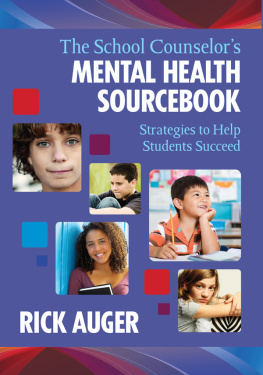
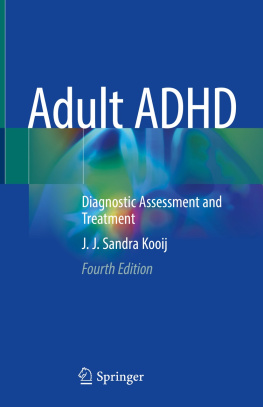
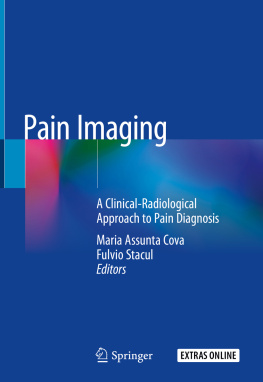
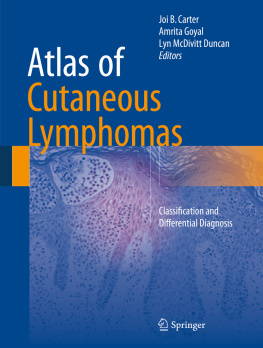
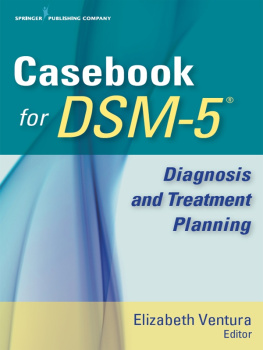

 Carolyn C. Baker
Carolyn C. Baker